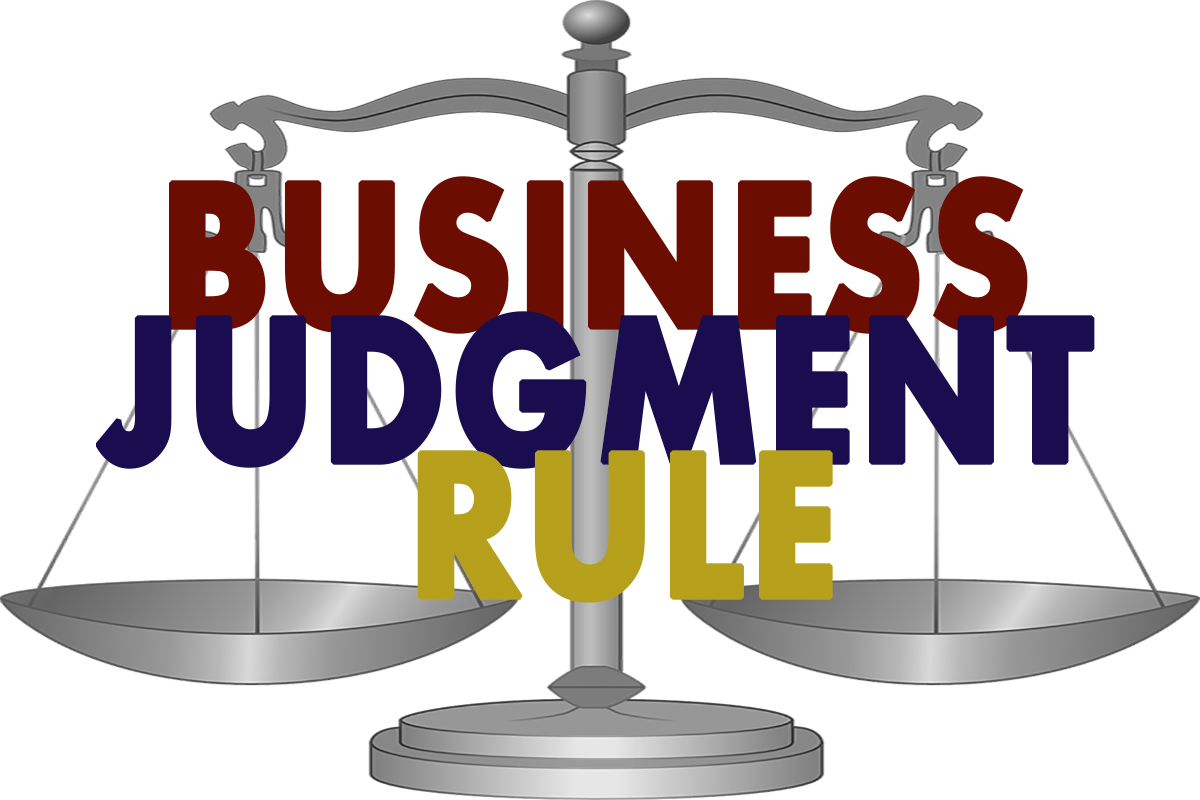Business Judgment Rule For Directors
Business Judgment Rule For Directors. The ‘business judgment rule’ protects directors who make informed decisions in relation to their business, but which decisions do not necessarily result in the best outcome for a company. Business judgement rule (bjr) is a presumption that directors, by default, act while (1) sufficiently informed, in (2) good faith, and with (3) an honest belief that they have the best interest of the corporation and stockholders in mind.

This assumption frees board directors from the potential for liability for decisions they. (1) the directors did not in fact make a decision; But under the business judgment rule, bad calls made by directors of massachusetts corporations don't necessarily put them on the hook for bad outcomes.
The Duty Of Care Requires Directors And Officers To Act In As Competent A Manner As Would Reasonably Prudent People In Their Positions.[1] Officers And Directors Must Make Decisions That They Believe, In Good Faith, To Be In The Best Interests Of.
The business judgment rule is an important caveat to the corporate duty of care owed by officers and directors to their companies. 308, 313 (bankr.d.del.2011) the court stated under delaware law: The business judgment rule (rule), the most prominent and important standard of judicial review under corporate law, protects a decision of a corporate board of directors (board) from a fairness review (“entire fairness” under delaware law) unless a well pleaded complaint provides sufficient evidence that the board has breached its fiduciary duties or that the.
Are Clothed With Presumption, Which The Law Accords To Them, Of Being In Their Conduct By A Bona Fide Regard For The Interests Of The Corporation Whose Affairs The.
Under the business judgement rule, a court will not prosecute a director for his or her decisions if it can be shown that they were made: §607.0830 (1).the business judgement rule is a standard originally created to determine if a director of a corporation breached his/her fiduciary duty to the stockholders. He business judgment rule is a legal principle that protects directors of a company from personal liability to the company for loss incurred in business transactions that are within their authority and power to make when sufficient evidence demonstrates that the transactions were made in good faith.
A July 8, 2013 Decision By Judge Dean Pregerson.
Self dealing and putting one’s own self interest above that of the company can lead to personal. The business judgment rule is not a substantive rule of law, but instead, it is a rebuttable presumption that in making a business decision the directors of a corporation acted on an informed basis, and with the honest belief that the action taken was in the best interests of the corporation and its shareholders. The ‘business judgment rule’ recognises this risk and protects directors against claims that they were acting without care when making legitimate and reasonable business judgments which did turn out as planned.
While The Rule Reaches Back Many Years In American Legal History, It Has Assumed A New Role In The Twilight Decades Of The Twentieth Century.
1985) although unsolicited tender offers pose some very important issues (for example, the government's proper regulatory role), this report focuses on the responsibility of a board of directors and the issues to be. Similar to corporations being held accountable to its stockholders, directors owe a fiduciary duty to the association’s members. The business judgment rule for corporate director fiduciaries.
A Fiduciary To A Business Owes A High Duty Of Care To The Business As Discussed In Our Articles On Fiduciary Duties, Corporate Opportunity Doctrine And Limited Liability Entities.
This post breaks down the rule into its main points so it is easier to digest. (3) the directors were not disinterested or independent; The business judgment rule sets up a framework to assess affirmative board decisions unless a court deems that a more substantial review is warranted.
Post a Comment for "Business Judgment Rule For Directors"